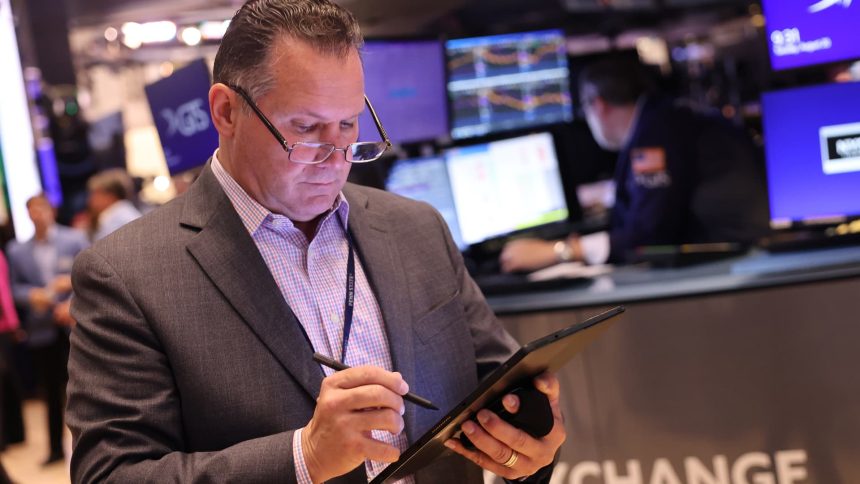Stocks ticked lower on Tuesday, ending a winning streak as investors failed to build on the market’s recent recovery rally.
The Dow Jones Industrial Average slid 61.56 points, or 0.15%, to 40,834.97. The S&P 500 slid 0.2% to 5,597.12, while the Nasdaq Composite shed 0.33% to 17,816.94.
Tuesday’s declines snapped eight-day winning streaks for the S&P 500 and Nasdaq, the first positive periods of that length for each since late 2023. If the S&P 500 had finished Tuesday up, it would have marked its longest winning streak since 2004. Meanwhile, the Dow notched its first negative day in the last six.
Despite Tuesday’s moves, the major averages have bounced back and market volatility has tumbled since the start of the month. The CBOE Volatility Index, or VIX, was last under 16 after topping 65 on Aug. 5. That was also the day that the S&P 500 suffered its worst session since 2022 amid a global market sell-off sparked by a weak July jobs report and an interest rate hike in Japan.
But strong retail sales data and a soft inflation report issued last week have helped soothe investors’ fears on the economy. The S&P 500 and Nasdaq are now both higher by more than 1% on the month, underscoring the market’s dramatic turnaround.
“There was this sell-off, people reassessed what was going on and we kind of came back to fundamentals of corporate America and the economy,” said Tom Hainlin, senior investment strategist at U.S. Bank Wealth Management. “Once we did so, you saw investors come back into the equity market.”
This week, investors are readying themselves for the Federal Reserve’s annual Jackson Hole Economic Symposium, where Fed Chair Jerome Powell is scheduled to give remarks Friday. Before then, traders will parse minutes from the central bank’s July policy meeting due Wednesday.
Wall Street is looking for hints of what to expect at the Fed’s next policy meeting. With fed funds futures signaling a certain interest rate cut, according to the CME FedWatch Tool, the only debate is whether central bankers will lower lending rates by a quarter point or a half point in September.
Fed officials want to signal that “they are on top of the curve — not behind it,” said Sam Stovall, CFRA Research’s chief investment strategist. “But at the same time, they don’t want to be too aggressive in removing the pressure before the fire is out.”
Cybersecurity company Palo Alto Networks jumped more than 7% after fiscal fourth-quarter results topped analysts’ estimates and it set a $500 million stock buyback. Home improvement retailer Lowe’s dipped more than 1% after reporting worse-than-expected revenue and lowering its annual profit outlook, noting an expected slowdown in consumer spending.
Beyond earnings, Bank of America slipped around 2.5% as Warren Buffett’s conglomerate Berkshire Hathaway continued dumping shares.
Read the full article here




